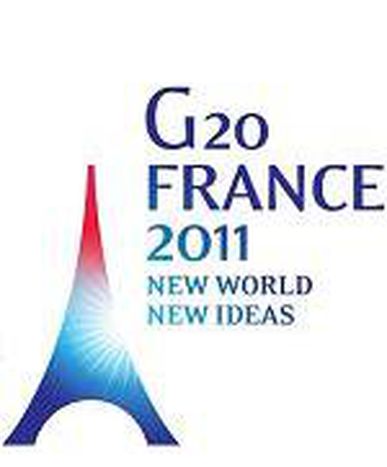
G-20 SUMMIT: NO NEWS, BAD NEWS
Published on
Par Cristina Mariani Little more than a week has gone by since the last Eurozone summit held in Brussels, when the Heads of the Euro States stayed awake until four in the morning to both politically and technically agree upon a deal to save the Euro. Then, only few days of vacation to celebrate Halloween and All Saints before going back to reality and face the Euro area crisis management.
This time was the turn of the Group of Twenty (G-20) Finance Ministers and Central Bank Governors of the most important industrialized and developing economies, which gathered for a two-day meeting to discuss Europe’s debt and the global economic situation.
Yes, because as mentioned in the joint statement released by the President of the European Council Van Rompuy and the President of the European Commission Barroso at the conclusion of the first day of the summit, “this outlook is true not only for Europe, but also for the United States and some emerging market economies. We all experience difficulties, we all have to contribute to a solution.”
So, what is the good news? - There is no good news for the moment. The joint statement underlines that the financial market turmoil has intensified and global growth has slowed while unemployment is rising. The solution relies in an ambitious action by all, able to generate new growth and get the 200 million unemployed worldwide back to work.
Again no good news. Because if strengthened cooperation and interdependence are the answers, the shock announcement of a referendum in Greece on the European aid and austerity package have revealed a dark insight into the everyday public opinion on the future of the European Union.
Eurosceptism is in rise, and while newspapers and TV talk shows have been monopolized by debates focused on the role of the European Central Bank, the lack of a true and effective European economic union to complete the monetary union, and the lack of democracy within the European system, European citizens have continued to raise their voice in the streets against the current political and social situation.
The list of the challenges and the slogans made is long; the question of whether these protests ground on valid arguments remains outside the scope of discussion. On the occasion of the G- 20, young protesters marched through Nice to urge leaders of the world’s richest economies to focus on people instead of savings banks to please and calm down the financial markets. “Peasants Before Finance”, “Life, not the Market” were the requests of these demonstrators, acting as a more general expression of the European youth that feels excluded from the possibility of shaping its own future, with a dream of a world without finance, without bankers and the arrogance of power.
Naïve. Maybe. But still another sign that Europe should assess critically, because future support and development of the European project by the Erasmus young generations cannot be taken for granted.
So, what is the lesson given by the world’s leaders in Cannes?
Beyond the discussion on the economic challenges, the agenda contained an ambitious “wish- list” dealing with issues relevant for all the represented economies, ranging from the reform of the International Monetary System, to the implementation of a true, comprehensive financial regulation reform, to the volatility of agricultural prices, the improved transparency of energy markets, the fight against corruption, climate change and the strengthening of the multilateral trading system.
The Guardian commented: “ambushed by Greece, dogged by the threat of looming disaster in Italy, overshadowed by the rapid deterioration in the global economy, this was the bleakest global meeting since the World Trade Organisation talks broke down in riot-torn Seattle in 1999.”
Although we want to try to be less negative, we have to be frank and admit that at this time little progress has been made by the G-20 leaders to ensure a stable future for next generations.
Failing to agree on a specific scheme to ensure increased funding for preventing the contagious effects of the Eurozone’s debt crisis, world’s leaders concluded reaffirming the seriousness of the European sovereign’s debt, and welcomed “the euro area’s determination to bring its full resources and entire institutional capacity to bear in restoring confidence and financial stability”. As of now, they (only) “will ensure that IMF continues to have resources to play its systemic role to the benefit of its whole membership”.
In other words, rather than the optimistic “yes, we can (Cannes)”, there was a more clear “no, we cannot”. There are still too many particularistic interests that prevail to find a comprehensive concrete solution to restore global growth. No apology.
The world wealth and power is rapidly shifting from the United States and Europe to the East. President Obama would like better to focus on the US internal problems and to Asia, but, as it occurred with the Lybia intervention, he finds again directly involved in helping Europeans to solve their problems. Even though under the leadership exerted by France and Germany acting as problem-solvers, Europe is lacking strong cohesion and commitment, as the Greek leader Papandreou’s announcement to subject to referendum the rescue package negotiated and agreed only a week before during the Euro Summit has shown. China, given its rising power, from developing country, turns to be the source of new financial assistance for help restoring global recovery. However, it feels not ready yet. It calls for a stable and sound European financial and economic market before being able to invest there, and actually to be ready to leverage its growing power to have its trade requests accepted.
Again, all bad news for us. Again, all good news for financial markets speculators. Tomorrow is another day.



